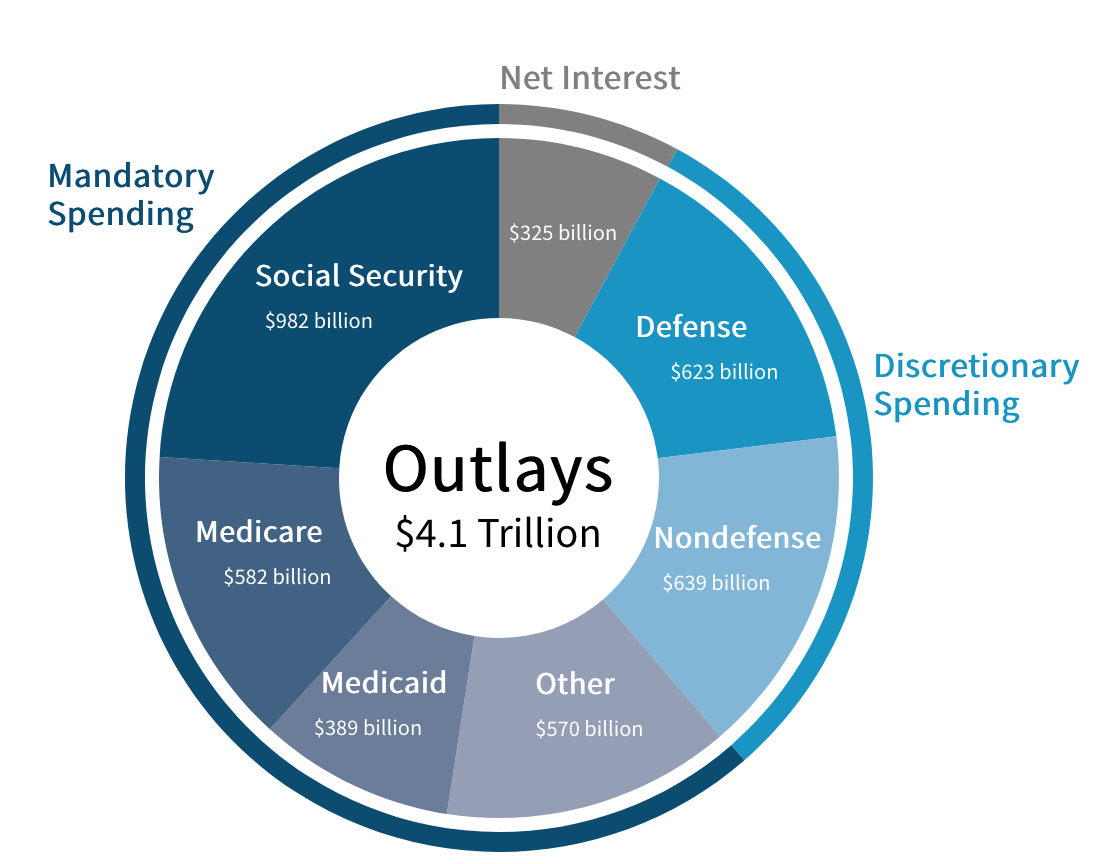
The National Debt Will Soon Surpass the Size of the U.S. CBO estimates that the deficit will exceed $1 trillion in each of the next 10 years and total $13 trillion during that time, which is nearly 60 percent higher than the deficits accumulated in the decade after the Great Recession. Over the 10-year period, CBO reports that deficits will average 5.1 percent of GDP, much greater than the 3.0 percent average over the past 50 years. By 2023, the deficit would decline to 4.9 percent as pandemic-related spending decreases and the economy improves. In 2021, the deficit is projected to drop considerably but remain high at nearly 9 percent of GDP. The deficit will reach $3.3 trillion in 2020, or 16 percent of GDP. The Federal Deficit Will Be Over $1 Trillion Every Year Through 2030ĬBO projects that the federal deficit will grow significantly in 2020 and remain high over the next decade. Interest costs will total $3.7 trillion over the next 10 years.

CBO projects revenues to fall from 16.3 percent of GDP in 2019 to 15.5 percent in 2021, primarily because of the economic disruption caused by the pandemic and the legislative response to it. Outlays would then fall as pandemic-related spending decreases, but will then resume their upward trajectory, reaching 23 percent of GDP in 2030. In 2020, outlays will equal 32 percent of GDP, approximately 50 percent greater than what they were in 2019.That is $2 trillion higher than projections for the same period made in January.

Over the 2020-2030 period, CBO projects that we will borrow $16.7 trillion.In 2023, the debt as a percentage of GDP would exceed its previous record, which occurred right after World War II. Debt held by the public will roughly equal the size of the economy by the end of 2020.
/cdn.vox-cdn.com/uploads/chorus_image/image/56679313/GettyImages_454251566.0.jpg)
CBO projects that the deficit will decline over the next four years, but will remain over $1 trillion annually through the 10-year period. That total is $2.3 trillion more than the agency estimated in January and more than triple the deficit recorded in 2019.


 0 kommentar(er)
0 kommentar(er)
